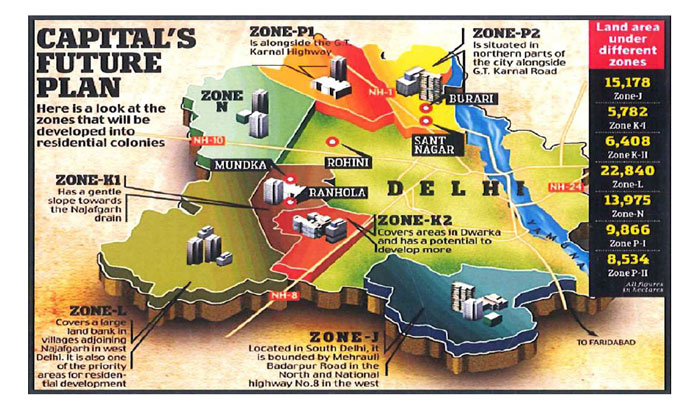
Amrapali Group launches High Life 2
india realty news, india real estate news, real estate news india, realty news india, india property news, property news india, india news, property news, real estate news, India Property, Delhi NCR real estate

india realty news, india real estate news, real estate news india, realty news india, india property news, property news india, india news, property news, real estate news, India Property, Delhi NCR real estate

Why do you buy a house in Noida, Noida Extension, Ghaziabad, Faridabad or even non-descript & hard-to-commute locations of NCR when you work in Delhi? If affordability is not the issue, won’t you prefer to live in the capital Delhi and not the satellite cities of NCR?

A few may have succeeded but most of the developers have failed to position themselves right during the slowdown. In the process Track2Realty finds that the brand realty has taken a severe beating, losing the trust of both the end-users and the investors. The brand positioning that differentiates between the two different realty companies is today negligible with developers’ focus to sell. That, unfortunately, is not working for them and commanding premium over the brand reputation today is a far cry. Our team speaks to a cross section of developers, analysts and brand experts who may differ with each other but nearly all agree that sector has to come out of the Catch 22 situation.

Experts recommend certain safeguards a homebuyer should take to evade getting into dicey deals:
Reputation: The buyer should invariably consider the reputation of the builder and their development history and form a fair idea of the credibility of the developer both in terms of timely completion of work and the quality of their construction.

In the real estate market consumer activism in India may have been high in recent times, but consumer awareness is pretty low. Most of the first time home buyers even fail to differentiate between what they want and what they need in an apartment, forget about their knowledge with regard to legalities and necessary checklist. The mismatch between developers’ offerings and buyers’ perception is a critical missing link leading to an impression gaining ground that the developer has not fulfilled his promise.

Track2Realty tries to simplify the real estate terminologies in practice that often confuses the buyers. There is no rocket science in real estate that buyers can’t adopt and understand for their own better understanding of the most valuable asset called house.

Track2Realty view on project delays The lack of regulations is…

Gaurav Kapoor booked a flat in one of the newly launched projects of Delhi-NCR in early 2007. He was promised the flat would be ready for possession within three years with a grace period of six months. To play safe Gaurav even opted for a construction linked payment plan to the developer but six years have gone and he is yet to get his flat and every time he has approached the developer, various reasons for delay have been cited from macro economic conditions to funding woes and approval delays on part of the government agencies.

One-sided builder-buyer contract, late delivery of the possession and poor quality of construction is an accepted reality in the Indian real estate. A prominent developer in Noida Extension is reportedly forcing its buyers to sign the modified apartment buyer contracts with extended possession date and reduced penalty for delay in handing over the apartments. “Otherwise, we are ready and willing to refund the entire booking amount along with 11 per cent interest, without any deductions,” says the forwarding of the letter sent to the buyers.

From being the governance wild child to maturing into a market influencer, India’s real-estate sector has transformed in the past decade, with a paradigm shift from family owned businesses to corporates along with a few companies listing on stock exchanges. The change began with the government opening doors to Foreign Direct Investment (FDI) in 2005 and then welcoming the next wave of stability as corporate houses brought image restoration for the sector. Led by corporate entities, realty companies soon adopted corporate governance wherein transparency began to trickle down into the system as a norm slowly.
